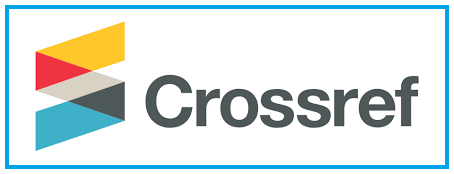EFEKTIVITAS PROGRAM PENYEDIAAN AIR MINUM DAN SANITASI BERBASIS MASYARAKAT (PAMSIMAS) DI KECAMATAN AMUNTAI SELATAN KABUPATEN HULU SUNGAI UTARA (Studi Kasus Desa Simpang Empat Dan Desa Rukam Hilir)
Keywords:
Management, Village Funds, and Non-Physical DevelopmentAbstract
The Community-Based Water Supply and Sanitation Program (PAMSIMAS) has become one of the national mainstay programs (Government and Local Government) to increase rural population access to proper drinking water and sanitation facilities using a community-based approach. This research is based on the background that in the Effectiveness of the Community-Based Water Supply and Sanitation Program (PAMSIMAS) in South Amuntai District, Hulu Sungai Utara Regency (Case Study of Simpang Empat Village and Rukam Hilir Village) there are problems, namely, in Simpang Empat Village, lack of responsibility from PAMSIMAS Program managers, lack of supervision in managing facilities and infrastructure, while in Rukam Hilir Village, lack of responsibility from PAMSIMAS Program managers, lack of supervision in managing facilities and infrastructure, and lack of management (MSDM). This study aims to determine the effectiveness of the PAMSIMAS Program and those that influence the Effectiveness of the Community-Based Water Supply and Sanitation Program (PAMSIMAS) in Amuntai Selatan District, Hulu Sungai Utara District (Case Study of Simpang Empat Village and Rukam Hilir Village). This research uses a qualitative approach with a descriptive-qualitative research type. Data collection techniques used were observation, interviews, and documentation with 14 data sources. Data were analyzed using data collection techniques, namely data condensation, data presentation, and drawing conclusions. Test the credibility of the data, namely extending observations, increasing persistence, trigulation, analyzing negative cases, using reference materials, holding member checks. The results of this study indicate that the Effectiveness of the Community-Based Water Supply and Sanitation Program (PAMSIMAS) in South Amuntai District, Hulu Sungai Utara District (Case Study of Simpang Empat Village and Rukam Hilir Village) has not been effective, this can be seen from the indicators: First, the work program has been going well. Second, the objective of the water supply program is good. Third, the evaluation of the program in Simpang Empat Village was quite good and in Rukam Hilir Village it was not so good. Fourth, target accuracy has been successful. Fifth, the output/result has not been effective. Sixth, community satisfaction with services has not been effective. Seventh, community satisfaction with program benefits in Simpang Empat Village has been effective and Rukam Hilir Village has not been effective. Eighth, it has not been effective in Simpang Empat and Rukam Hilir Villages. Ninth, the program's efficiency has been effective. Tenth, achievement of Downstream objectives has not been effective. Eleventh, Improving public health has been successful. In order to increase effectiveness it is suggested to: Heads of Simpang Empat and Rukam Hilir Villages to provide supervision and direction, to Managers to improve their capabilities and integrity, to the people of Simpang Empat Village and Rukam Hilir Village to always increase their participation in technical supervision, provide reports quickly when problems occur and provide criticism and suggestions
Downloads
References
Anonim, 2016. Peraturan Menteri Pekerjaan Umum Dan Perumahan Rakyat Republik Indonesia Nomor 19/Prt/M/2016 Tentang Pemberian Dukungan Oleh Pemerintah Pusat Dan/Atau Pemerintah Daerah Dalam Kerjasama Penyelenggaraan Sistem Penyediaan Air Minum.
Anonim, 2004. Undang-undang Republik Indonesia Nomor 7 Tahun 2004 Tentang Sumber Daya Air.
Anonim, 2014. Undang-undang No 23 Tahun 2014 tentang Pemerintah Daerah.
Anonim, 2022. Pedoman Umum- Pedoman Umum program Penyediaan Air Minum dan Sanitasi Berbasis Mayarakat (PAMSIMAS).
Anonim, 2023. Pedoman Umum- Pedoman Umum program Penyediaan Air Minum dan Sanitasi Berbasis Mayarakat (PAMSIMAS).
Anggono, Alexander, 2021. Akuntansi Manajemen Pada Entikasi Publik, Jawa Barat: Penerbit CV. Adanu Abimata.
Angrayni, Lysa, 2018. Efektivitas Rehabilitasi Pecandu Narkotika Serta Pengaruhnya Terhadap Tingkat Kesejahteraan Di Indonesia. Pulung Kab. Ponorogo: Penerbit Uwais Inspirasi Indonesia.
Arindya, Radita, 2019. Efektivitas Organisasi Tata Kelola Minyak Dan Gas Bumi, Surabaya: Penerbit Media Sahabat Cendikia.
Bahri, Al Fajri, 2022. Evaluasi Program Pendidikan, Medan: Penerbit UMSU PRESS.
Dr. Ir. Mulyadi, 2021. Dasar-Dasar Ilmu Manajemen, Bengkalis-Riau: Penerbit DOTPLUS Publisher.
Fiantika,F,R, Muhammad Wasil dkk. 2022. Metode Penelitian Kualitatif, Sumatera Barat: Penerbit PT. GLOBAL EKSEKUTIF TEKNOLOGI.
Gunawan, Imam, S.Pd.,M.Pd. 2013, Metode Penelitian Kualitatif: Teori dan Praktik. Jakarta: Penerbit PT Bumi Aksara.
Handayani, Luh Titi. 2023, Buku Ajar Implementasi Teknik Analisis Data Kuantitatif(Penelitian Kesehatan). Jakarta: Penerbit PT. Scfitech Andrew Wijaya.
Hardani, dkk. 2020. Metode Penelitian Kualitatif dan Kuantitatif. Yogyakarta: CV Pustaka Ilmu.
Ibrahim. 2018. Metodologi Penelitian Kualitatif. Bandung: ALFABETA.
Mutaqin, Agus Zaenal. 2022. Program Pendidikan Dan Pelatihan, Jawa Tengah: Penerbit PT. Nasya Expanding Management.
Mutiarin, Dyah dan Arif Zaivudin, 2014. Manajemen Birokrasi Dan kebijakan, Yogyakarta: Penerbit Pustaka Pelajar.
Sugiyono. 2018. Metode Penelitian Kuantitatif, Kualitatif dan R&D. Bandung: Alfabeta.
Downloads
Published
How to Cite
Issue
Section
License
Copyright (c) 2024 Arief Budiman, M. Husaini, Norjannah

This work is licensed under a Creative Commons Attribution-ShareAlike 4.0 International License.









